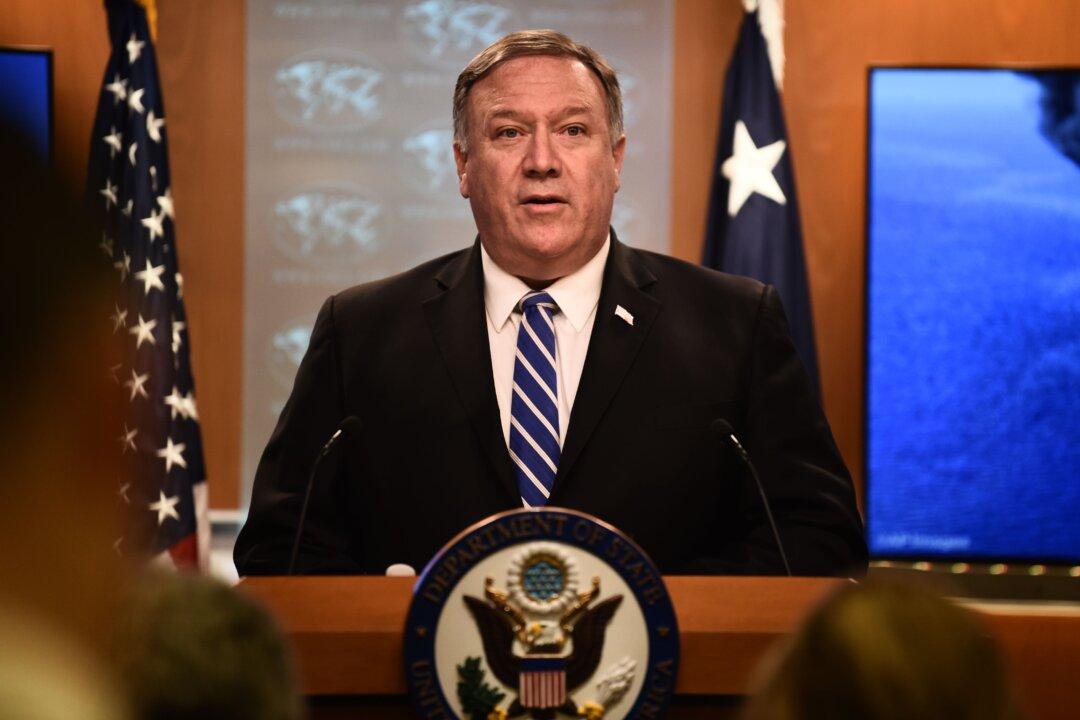Secretary of State Mike Pompeo said Iran was responsible for the June 13 attacks against two oil tankers in the Gulf of Oman, as President Donald Trump responded that it was “too soon” to even consider sorting out a deal with the country.
One of the tankers was set ablaze during the attack as the U.S. Navy rushed to assist the stricken vessels near the Strait of Hormuz. Each tanker was loaded with petroleum products with one vessel, named the Front Altair, burning for hours.





